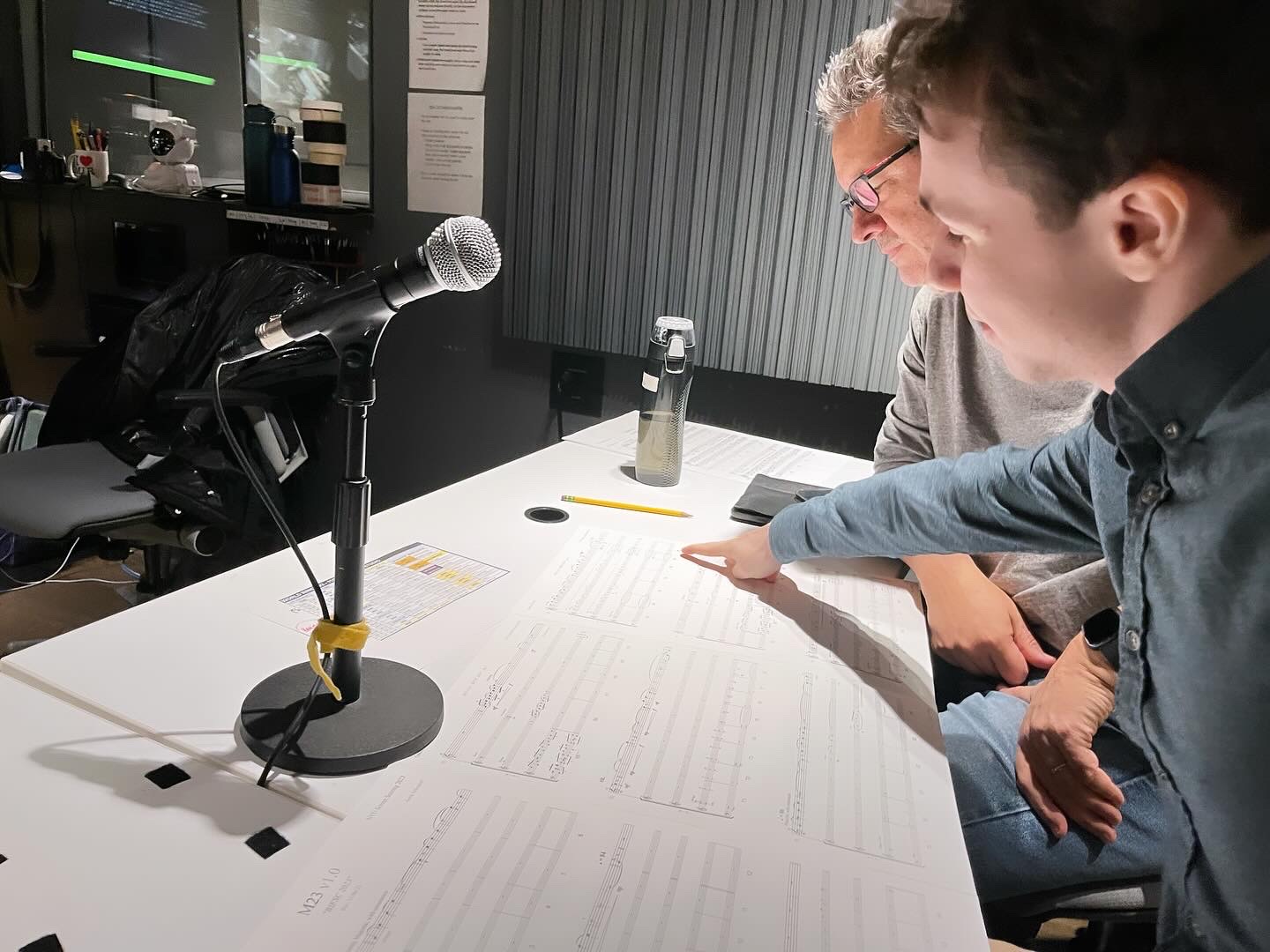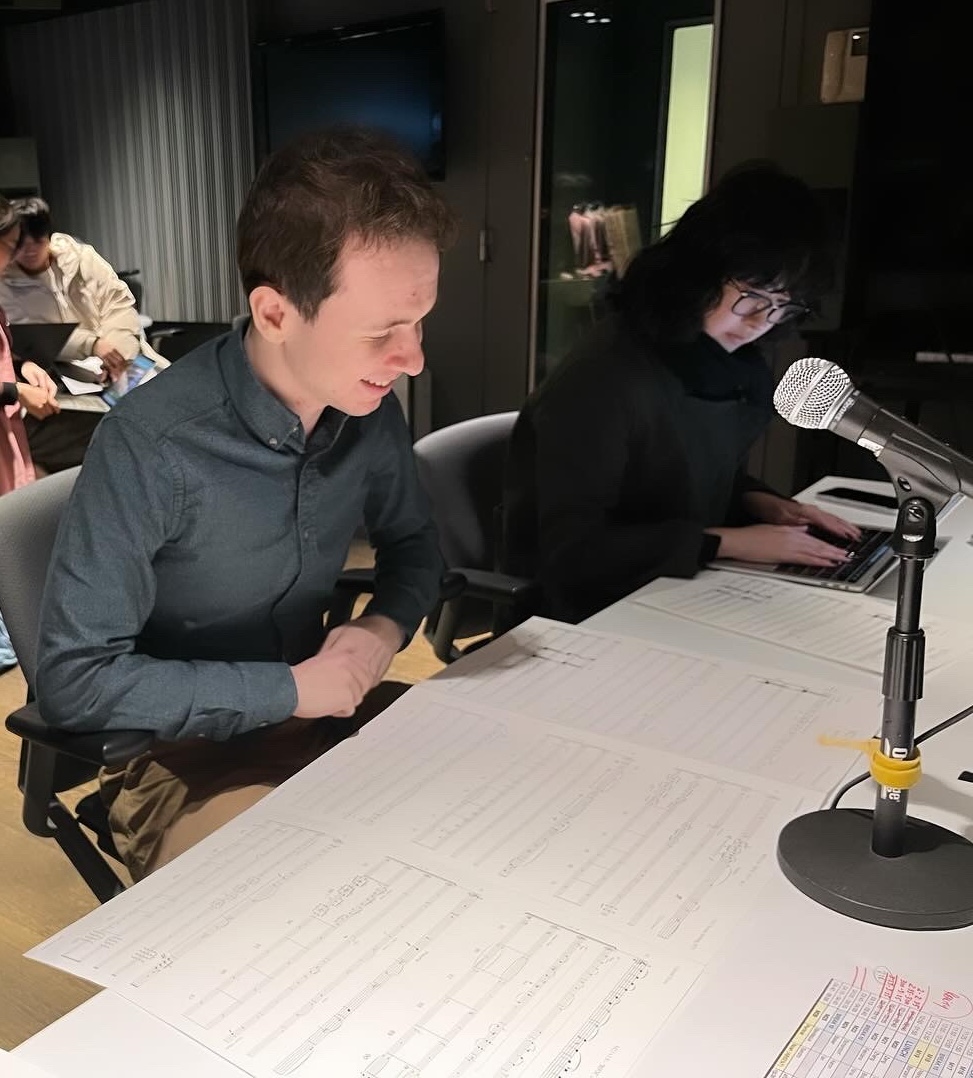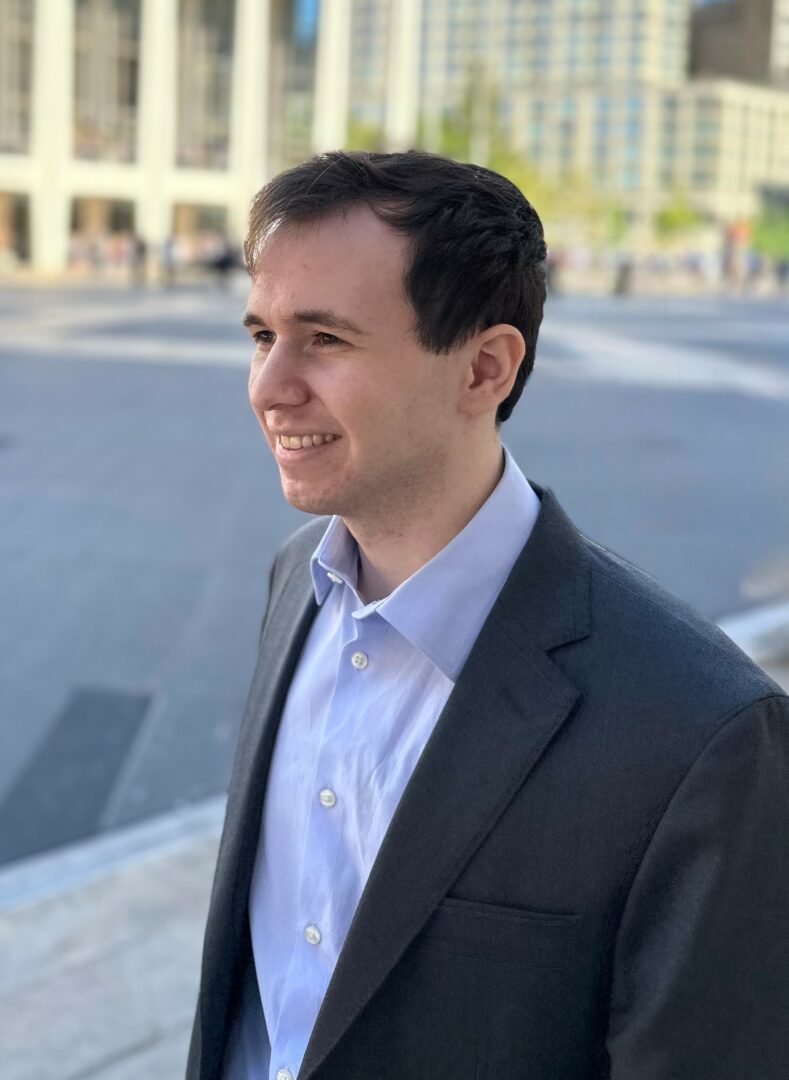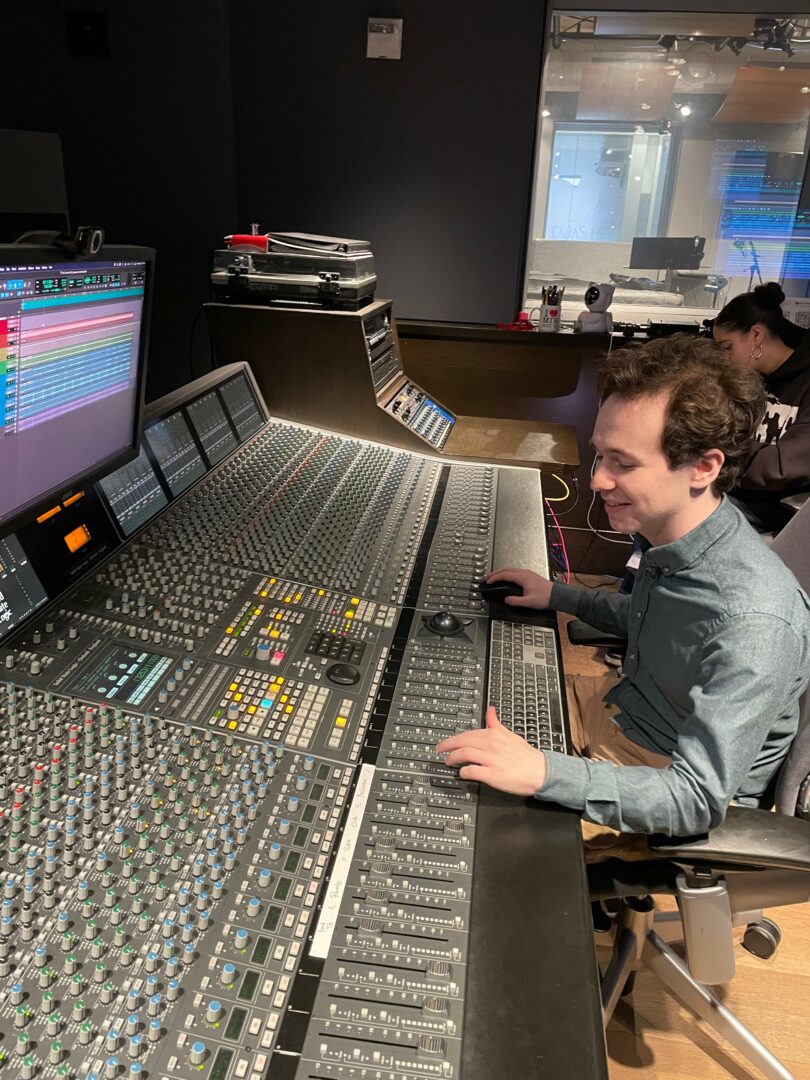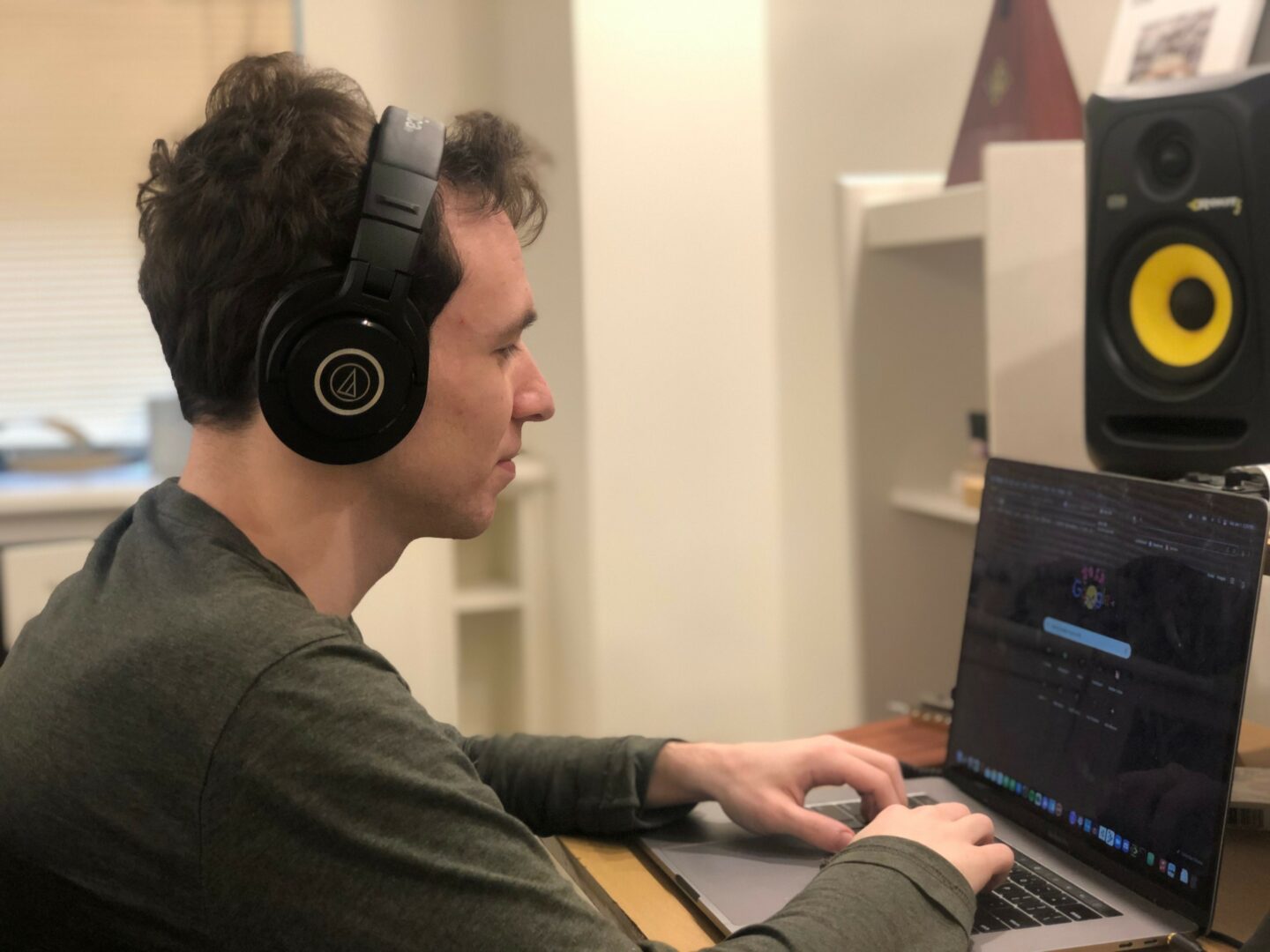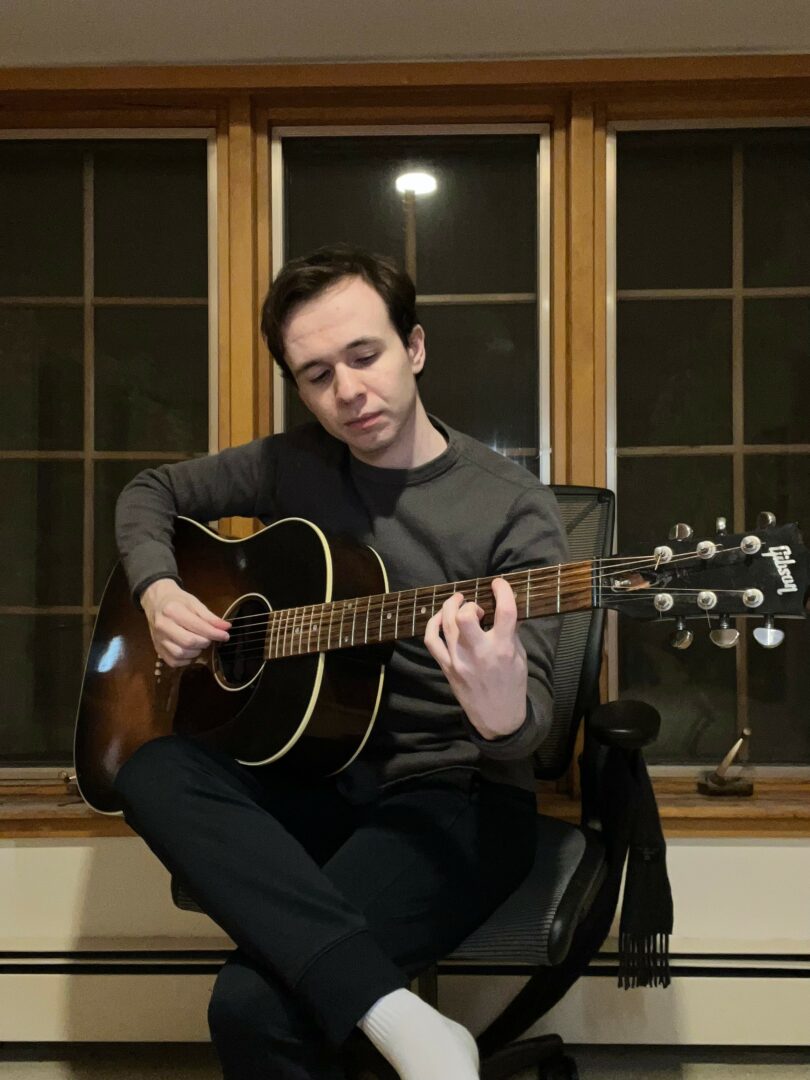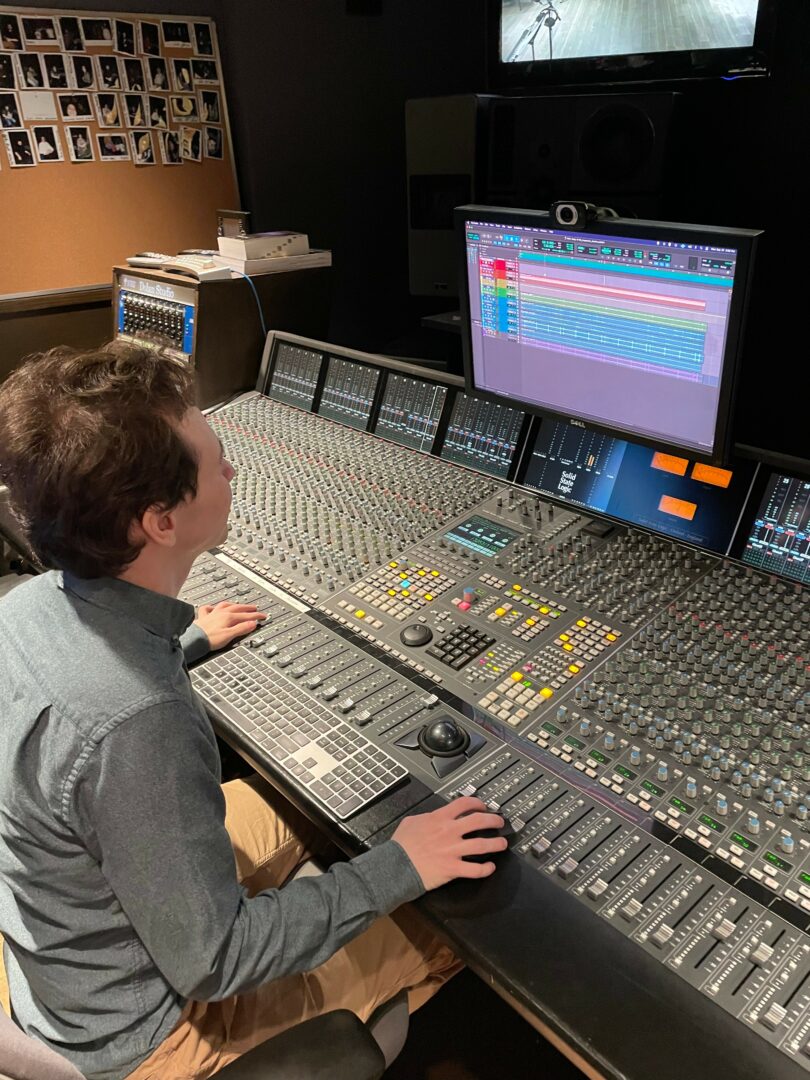We recently connected with Aaron Schondorf and have shared our conversation below.
Hi Aaron, we’re so appreciative of you taking the time to share your nuggets of wisdom with our community. One of the topics we think is most important for folks looking to level up their lives is building up their self-confidence and self-esteem. Can you share how you developed your confidence?
I am a musician, and we often think of musicians as exuding a certain level of confidence and self-esteem. From the outside, it can seem that the music industry is rife with ego and self-pride, but I find that its really a select few that are like this, and even less so in the screen scoring industry. Developing confidence, both in my music and myself, was integral to my journey as a musician. I still remember being in a music composition class in middle school where the teacher played the first piece I ever wrote over the speakers for the class to hear. I recall sinking into my chair in the corner of the room, trying to disappear through the floor and preferably – in my mind – stop existing in this world until my piece was over.
I believe it is natural to feel self-conscious about people hearing music that you composed, or a sketch that you drew, or anyone else interacting with your art in any way. My art, no matter how universally applicable I try to craft it, is filtered through my experiences, my knowledge, and everything else that makes me, me. No matter what media I write music for, nor what I attempt to say through my music – even if I am trying to write a theme for a superhero that has nothing to do with me – its my music. In some sense it is a piece of me. In another sense it is me in my entirety, on a stage for the world to see and judge. Every time someone listens to my music, I am opening myself for them and I feel as though they can see through me.
So how did I develop from someone who never wanted anyone to hear his music to someone who actively goes out of their way to get people to listen to them? Part of it was just maturing as a person; a large part of it was understanding that my self-consciousness was natural. Mostly, I found people who were good listeners. People who would genuinely listen to my music and who I trusted to not conflate the value of my art with the value of myself. As I practiced, both writing and having people listen to my music (which I contest is a practicable skill), my confidence and self-esteem naturally grew.
Great, so let’s take a few minutes and cover your story. What should folks know about you and what you do?
I am a multimedia composer, which means that I write music for film, television, video games, advertisements, etc. – essentially any type of media that needs music. Some composers like to specialize in one or more of these fields, but I enjoy each for their benefits and challenges. Obviously, what differentiates media composers from other types of musicians is that the music is tailor made to the media it accompanies. Some see that as muddying the composing process by mashing it with another art, but that view fails to take into account that the art is both the music and the media working together. I love writing music for media because it is the ultimate example of form follows function: in this case how a piece sounds is dictated by how it is used in the media.
So in film and television, the challenge is specificity. The function of a piece of film music is to enhance what is happening on screen at any given moment, be it by guiding the viewer or by providing context or emotion that is not present in the images. As such, it is all about timing. When I work on a film I am constantly adjusting the timing and speed of the various musical elements, maybe delaying a dramatic chord for just a moment to create more tension. This is the opposite in scoring a video game or other types of mutable media, where the challenge is adaptability. In games, we are often writing sections of music that can transition at a moments notice, or maybe we compose a piece in layers that can fade in and out to match what is happening on screen. Since in this case, the audience is an active participant in the story, we have to think about all of the ways they can participate and how music can help encourage exploration of the mechanics of a game as well as the narrative experience.
At the outset of every project I am on, I remind myself of the three levels of music. The first level is the kind of music that 90% of the people in my industry can write. Sure everything will match the mood and drama of the media, but it is generic and uninspired. The second level is the kind of music that the top 10% of the best media composers can write. This music is more creative, fully fleshed out, and tells the story in a more cohesive way. The third level of music is the music that only I can write and only for this project. This music is inherently tied to myself, the project, and the team of people as a whole working on said project. I always try to create music in this level because it insures that I am not repetitive or unoriginal and the music acts on the specifics of the story or emotion in the underlying piece.
If you had to pick three qualities that are most important to develop, which three would you say matter most?
I believe that there are three aspects to being a good composer: listening, experimentation, and discipline. Listening covers not just passive hearing, but focuses on more active music comprehension. Now, listening itself is pretty specific to music and other auditory art forms, but you could swap this out for “watching” or “looking” if you are an artist or a film maker, or “reading” if you were are a writer. It’s really simple: you have to know what art has come prior before you know where your art can take you. If you want to write classical music, listen to Beethoven and Bach. If you want to write jazz, listen to Ella Fitzgerald and Duke Ellington. For me, this means that I am constantly listening to the likes of John Williams, Hans Zimmer, Koji Kondo, etc. I usually don’t fully analyze their music, but I try to understand why they made the artistic choices they did. By understanding the landscape of my art form, both historically and currently, I am able to tap into a long lineage of musical knowledge and expertise. For instance, I write a fair amount of music that taps into the jazz canon. Looking back on some of my pieces, you can actually hear when I started really listening to jazz. My music became more fleshed out, less cliche, and just better over all because I was able to understand jazz music on a fundamentally different level through my listening.
The second aspect is experimentation. Without experimentation, anyone who writes music will end up trodding the same ground as their predecessors. While my advice for anyone looking to get into composing music is to start by copying others, continuing to do so without experimenting on one’s own is just imitation, which is hollow and stale. With every new project or piece I start, I try to do something that at least I have never done before: working with a new instrument in a new context; crafting new sounds myself with synthesizers; playing with new genres that I have no experience in. The history of music is basically as long as the history of humanity, so I know I am not doing something that has literally never been done before (though that is a goal I strive towards), but I know that my creative process is not stagnant.
The third aspect is discipline. I believe there are very few geniuses in the world and I know that I am not one of them. Music and other art forms takes time and repetition like any other skill, and discipline is your ability to do so. Without discipline, I will never improve as an artist. For me, discipline means that I write music practically every day. Sometimes it is hard, and sometimes I end the day by basically throwing out what I created, but it is necessary for me.
What would you advise – going all in on your strengths or investing on areas where you aren’t as strong to be more well-rounded?
This is a difficult question to answer, mostly because of its granularity. I feel as though no matter how well rounded I think I am, as I zoom out on my life I realize that my field is actually quite narrow. That is to say that as a composer, I am very well rounded. I work with everything from synthesizers to live orchestras; <i>in</i> various genres like orchestral, experimental, rock, and jazz; <i>for</i> different genres such as horror, drama, comedy, and documentary; and for different mediums such as film, video games, and theater. That’s a pretty wide area that I cover. But if we take a step back and look at how I am as a musician as a whole, then I really only compose music for media. I don’t really play music, though I do try to improve at my piano and guitar skills, and I basically never write concert music (i.e. music that exists only for itself). Zoom out again and I am really just a musician who likes to cook and play boardgames.
For me, in my world of media composition, being well rounded has been only a boon. For instance, I am currently writing music for a video game that is all electronic and synth based. That is really not my area of expertise as I come from a very classical background with some sprinkling of rock and jazz. However, I have been able to take those skills to help craft this score in a way that is uniquely me, folding in elements of rock grooves and drums (not so much jazz yet, but maybe later) for the rhythmic elements and using my knowledge of orchestral melodic sensibilities as well as orchestration – how to divide musical elements among a western orchestra – in my writing. Conversely, when I go back to working on other more orchestral projects, I am able to use what I learned in my synth writing – focusing on bass, chords, and melody, crafting a unique sound for my music, etc. – to improve my compositions.
Contact Info:
- Website: https://aaronschondorf.com/
- Instagram: @aaronschondorfcomposer
- Facebook: https://www.facebook.com/aaron.schondorf.3
- Youtube: https://www.youtube.com/@aaronschondorf1560
- SoundCloud: https://on.soundcloud.com/Hc6jSAdBJno5XMyp8
